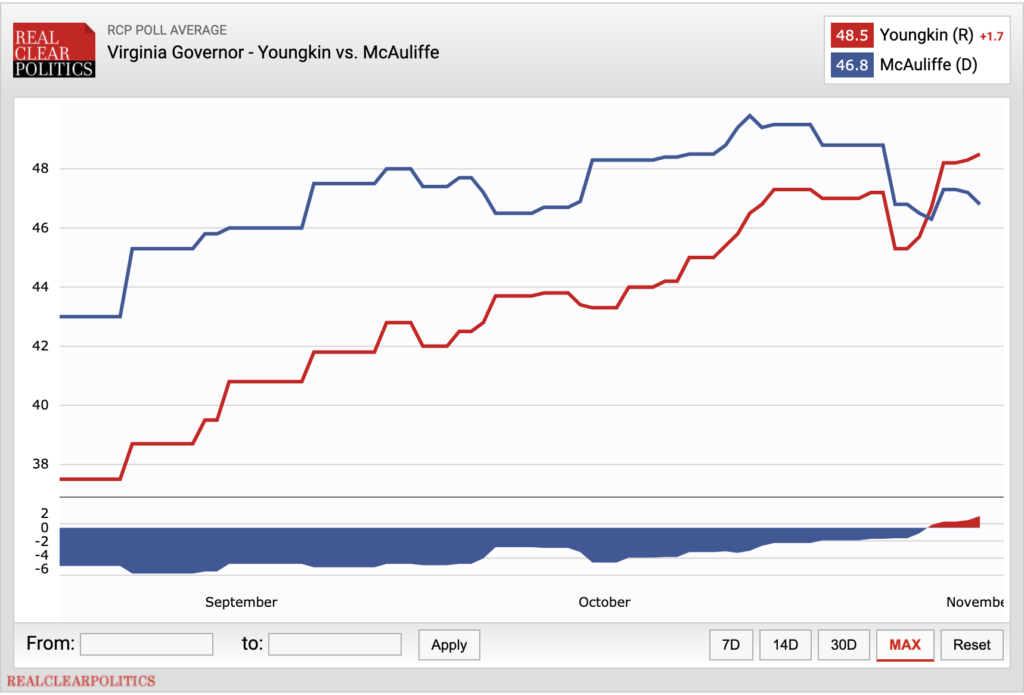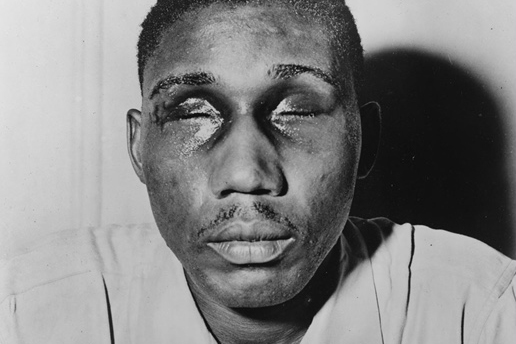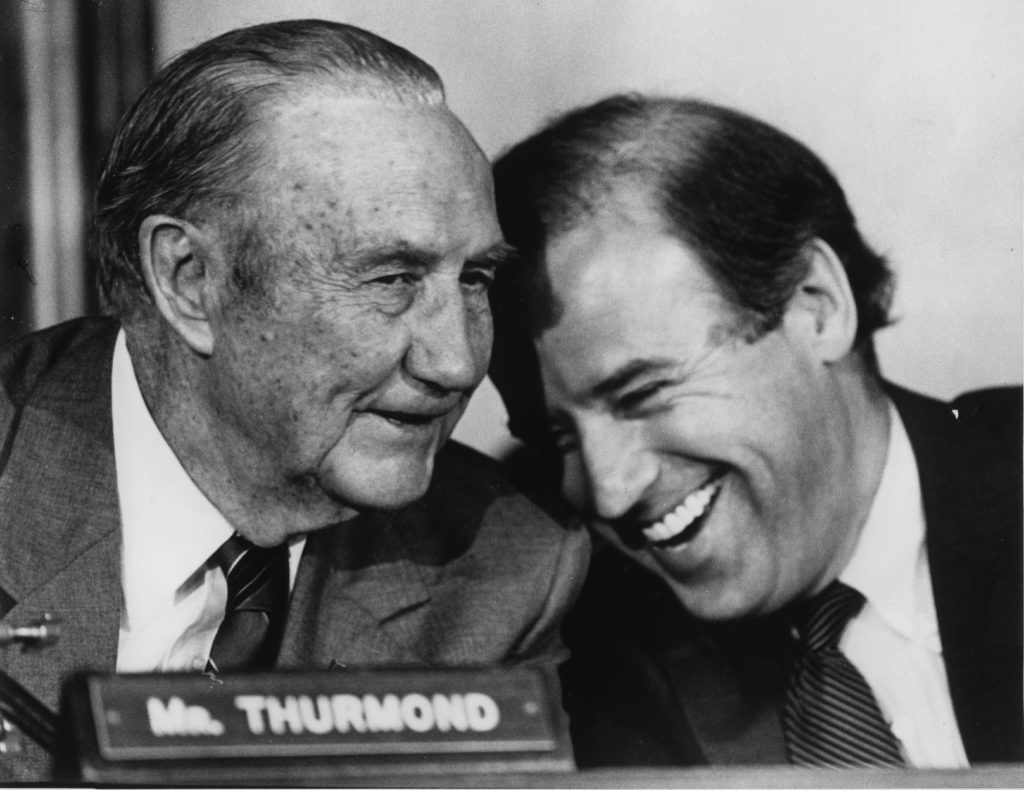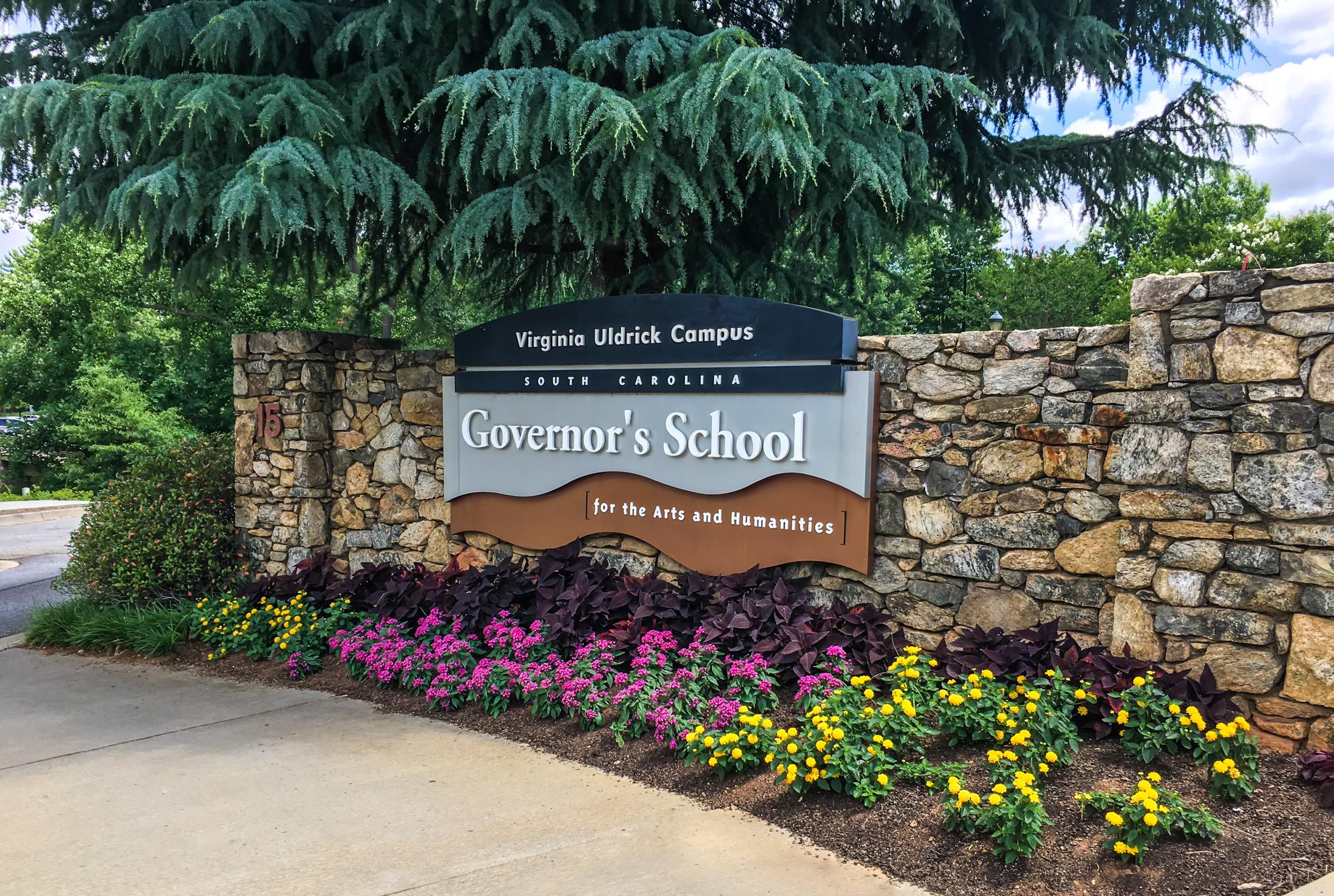Last fall, this news outlet exclusively reported allegations of taxpayer-funded critical race theory (CRT) training taking place at the South Carolina governor’s school for the arts and humanities (SCGAH) in Greenville. Freedom of Information Act (FOIA) requests were sent to the school to corroborate the claims made by sources who attended the training.
The documents (attached below) confirm the training happened – and that it was conducted by University of South Carolina professors Gloria Swindler Boutte and Susi Long at the beginning of the current school year.
CRT has been a highly controversial subject in American politics in the last year thanks in large part to activist and City Journal author Christopher F. Rufo – who brought the issue to the national stage. Rufo defined CRT as an academic discipline which “holds that the United States is a nation founded on white supremacy and oppression, and that these forces are still at the root of our society.”
Rufo has been credited by those on the right for calling out a plot to divide America. Meanwhile, he has been derided by those on the left for “inventing” CRT as a way to scare white parents.
Notwithstanding the validity of either side’s perspective, CRT has had important electoral and cultural implications. Take Virginia, where conservative activists obtained and published politically divisive curriculum from multiple government-run schools – leading to greater parental engagement and questioning of curricula (and policies) at school board meetings.
Virginia school board meetings were soon transformed into a hotbed of protest against progressive policies which extended past race. For example, Loudon County parent Scott Smith’s ninth grade daughter was a victim of “non-consensual sex” at the hands of a a transgender student in the women’s room at her school. The school district established the policies that allowed the transgender student into the bathroom – and in what looked like an attempt to avoid scrutiny of their policies, failed to document the sexual assault of Smith’s daughter when she reported it to the school.
Smith became agitated when school board members claimed their transgender policies did not result in any documented assaults – and was arrested after he got into an argument with an LGBT activist who said she didn’t believe his daughter’s claims (a London County judge would later find enough evidence of the occurrence of the incident to convict the transgender student of rape.)
Smith’s story gained further altitude when the National School Boards Association (NSBA) cited him in a September 9 letter to president Joe Biden calling on him to use the federal government’s law enforcement powers to protect school board members from potential “domestic terrorism” and “hate crimes.” Five days latter, U.S. attorney general Merrick Garland sent a memorandum directing the FBI and federal prosecutors to aid local law enforcement in “discourag(ing) these threats, identify(ing) them when they occur, and prosecut(ing) them when appropriate.”
The memorandum sparked instant backlash among conservatives who claimed the Biden administration was using federal law enforcement to crack down on its political opponents. South Carolina attorney general Alan Wilson joined in a letter to the president – claiming Biden intended “to intimidate parents into giving up their constitutional rights to direct the upbringing and education of their children.”
A memo released months later exposed the Biden administration’s active role in drafting the memorandum that the NSBA submitted.
It wasn’t only activists and politicians who were upset. Republican gubernatorial candidate Glenn Youngkin was able to successfully leverage the issue in the months leading up to the 2021 election to win the favor of Virginia parents – who reacted negatively when Democratic candidate Terry McAuliffe said “I don’t think parents should be telling schools what they should teach” during the second gubernatorial debate on September 29.

Parents clearly disagreed with that sentiment, as reflected by the aggregate polling data’s shift after the debate. Data published by education research group Free to Learn suggests this trend extends beyond Virginia. Nearly three-fourths of parents (72 percent) who responded to the group’s December 2021 national poll said they should “be able to request the curriculum taught to their children” while more than two-thirds (67 percent) supported “parents’ ability to opt their children out of curriculum they deem harmful or inappropriate.”
McAuliffe misread parents – and was punished for his error by losing what should have been an easily winnable race for his party.
This news outlet first began receiving tips about CRT training at the governor’s school at the height of the drama in Virginia, and submitted FOIA requests to the school eight days after Youngkin’s surprising gubernatorial victory.
The school returned the requested materials in a timely manner, and their contents reveal racially divisive educational initiatives that should start a conversation around how to appropriately handle the complexities of teaching South Carolina’s history and leading fair institutions given that history.
***
UNDERSTANDING SOUTH CAROLINA’S PAST
Before diving into the documents returned by the Governor’s School, I’d like to take an abridged look at the history of race relations in South Carolina.
South Carolina was settled by the English in the spring of 1670 when 150 colonists, indentured servants, and slaves arrived at Albermarle point at the confluence of the Ashley and Cooper Rivers – where they founded Charles Town.
The first few decades were difficult for English colonists. They faced attacks from the French, Spanish and Native Americans – even from pirates – as they attempted to avoid starvation and disease.
To expand their footing in the new world and rid themselves of their enemies, the colonists enslaved Native Americans. Native slaves cultivated their land – and were sold abroad. Historians estimate anywhere between 24,000 and 51,000 Native American slaves were sold between 1670 and 1717 in the Carolinas (an English territory which varied in size throughout the colonial period).
The enslavement of Native Americans was a causal factor of the Yemassee War (1715-17). The brutal war saw the Yemassee led Native American alliance nearly destroy the colony, only to be defeated by an alliance of colonists and rival Natives Americans.
Following the war the colonists almost exclusively relied on importing African slaves. Africans slaves were seen as preferable to Native Americans because they could tolerate harder labor and because they were not knowledgeable enough about the terrain to successfully escape. This time period saw rice and indigo rise in importance as commodity crops which only increased the colonists’ reliance on slave labor.
This reliance persisted throughout the remainder of the colonial era, the revolutionary war, and the early union. As America seized its Manifest Destiny in the early 19th century, the struggle for power between free and slave states became increasingly intense. Following Abraham Lincoln’s election – on the back of a promise to prevent the further expansion of slavery – South Carolina became the first state to secede from the Union in December of 1860. South Carolina joined the Confederate States of America in February of 1861, and played host to the start of the Civil War when Confederate forces attacked Fort Sumter in Charleston Harbor.
Following the collapse of the confederacy in 1865, South Carolina underwent a period of Reconstruction for the next dozen years. During this time period a federal military government ran the state.
This federal military government required a new constitution for re-admission into the union. South Carolina submitted a constitution which failed to protect the civil rights of former slaves – who were weren’t allowed to vote. South Carolina’s insistence on sending Confederate heroes to congress and implementing “Black Codes” to harshly regulate former slaves aggravated members of congress, who disallowed the 1865 constitution. The federal government ensured that qualified freed slaves were given the opportunity to vote and that former Confederates were prevented from holding office.
The compromise of 1877 saw the end of federal control in the south when southern democrats agreed to deliver the contested presidential election to republican Rutherford Hayes in exchange for the ability to rule their own states. Calls for a new constitutional convention emerged alongside black codes that would come to be knows as Jim Crow Laws – edicts intended to limit African-American’s autonomy while not infringing on the 15th amendment of the constitution.
In 1895, a new constitution was adopted which gave the legal basis for racial discrimination in the Palmetto State. It mandated literacy tests as a requirement to vote, which were disproportionately used to disenfranchise African-Americans. The 1895 constitution also mandated racial segregation in schools, which was deemed constitutional the following year in the Supreme Court’s infamous Plessy v. Ferguson case.
While the Supreme Court mandated separate but equal accommodations, South Carolina’s schools ensured racial separation while enforcing educational inequality. State government spent $221 per white student and $45 per black student in the late 1940’s. African-American parents and their supporters brought suit over this disparity in Clarendon County, and while they lost the case they were able to get the first dissent criticizing Plessy, which paved the way for the end of the doctrine.
Legalized discrimination made life incredibly difficult for black people in South Carolina. Consider the case of Isaac Woodard – a decorated World War Two veteran from Batesburg-Leesville who was attacked (while still in uniform) by Batesburg Police Chief Lynwood Shull as he rode the bus home to see his family.
Shull gouged his eyes out.

South Carolina refused to prosecute Shull at the state level, so president Truman ordered a federal trial. The “lawman” responsible for blinding Woodard was then acquitted by an all-white jury. This injustice galvanized the national civil rights movement.
The state of South Carolina was home to many important moments in the national civil rights movement. In June of 1954, Sarah Mae Flemming sat in the whites-only section of a South Carolina Electric and Gas Company-operated bus in Columbia. When the driver instructed her to stand and wait for a black seat she tried to exit the bus at the next stop, but was beaten by the driver. She brought suit in a federal court.
Flemming’s suit resulted in a ruling that bus segregation is unconstitutional which would later help Rosa Parks when she faced similar discrimination. In the same year the Supreme Court ruled that segregation in school was unconstitutional in Brown v. Board of Education.

White politicians denounced de-segregation. U.S. Senator and former governor of South Carolina Storm Thurmond authored the southern manifesto – which described the Brown decision as “unwarranted” and referred to anti-segregationists as “agitators and troublemakers invading our states.” Thurmond served in the U.S. Senate until 2003.
***
HOW SHOULD WE TEACH OUR HISTORY?
One thing is clear, South Carolina has a history of racial inequality that runs deep. This history must not be ignored. Students, black white and otherwise, must be made aware of the horrors and indignities inflicted upon generations of black and native American South Carolinians.
Traditional advocates for racial justice understood this well.
In his famous I Have A Dream speech, Dr. Martin Luther King Jr. cited the promises of life and liberty made in the constitution, referring to them as a promissory note. “This note was a promise that all men, yes, black men as well as white men, would be guaranteed the inalienable rights of life liberty and the pursuit of happiness.”
He lamented “it is obvious today that America has defaulted on this promissory note insofar as her citizens of color are concerned.”
Despite the failings of his country King reminded those assembled that “we refuse to believe that the bank of justice is bankrupt. We refuse to believe that there are insufficient funds in the great vaults of opportunity of this nation.”
King ultimately found the success he did because he called on the American people to be the best versions of themselves – leaving the door open even for those currently participating systems which perpetuated inequality to grow as people and to grant unto others privileges they previously enjoyed only themselves.
The same inexorable flaws in the human condition which precipitated the prejudice of King’s time still lurk in the hearts of every one of us – and always will. The principles of equality and freedom articulated in the Constitution, that great promissory note, will always stand above the shallow bigotry of mortal men. King proved this.

***
So … how does critical theory fit into this picture?
Notice I didn’t say critical race theory? That was intentional. Critical theory is a school of thought introduced in the mid 20th century by Frankfurt School theoreticians, most prominently Herbert Marcuse. Marcuse’s work used a Marxian framework to criticize capitalism, modern technology, popular culture, and soviet communism.
Marcuse and his colleagues developed a system of criticism rooted in the Hegelian dialectic which allowed for the application oppressor/ oppressed dynamic to any group in society. The Frankfurt school broke Marxism down to its elemental composition and in doing so made it applicable to more groups.
No longer could you only use Marx’s framework to exclusively deride the relationship between owners of capital and workers. Marcuse’s addendum opened the door for this same scrutiny to be applied to racial groups, to genders, to sexual orientations etc.
The seeds of modern intersectionality were sewn.
Critical Race Theory’s intellectual drivers share Marcuse’s Marxist interpretation of race. Ibram X. Kendi, author of the bestselling book How to be an Antiracist, posits that all differences in racial outcome are a consequence of racism. Kendi has said publicly on multiple occasions, “When I see racial disparities, I see racism.”
This perspective is toxic because if one believes racism is the cause of all disparities, they would be justified in not closing any gaps on their own – and must instead rely on an outside entity to facilitate their participation in society.
That is what Kendi and his Ilk are counting on … There is tremendous power in being the person with the authority to right bigoted wrongs. Despite saying “the life of racism cannot be separated from the life of capitalism,” Kendi charges $20,000 an hour for training sessions in which he instructs corporate and governmental entities in antiracist policies. A core tenant of these policies is that “the only remedy for racist discrimination is antiracist discrimination”
Dr. Martin Luther King Jr.’s dream of a world free of discrimination has been eschewed in favor of a nightmarish existence in which those who were discriminated against become the discriminators. A cottage industry of consultants and speakers have emerged to facilitate this descent.
This takes us full circle back to the Palmetto State, where three University of South Carolina professors have formed the Anti-Racist Collective, a group which aims to integrate “culturally relevant instruction into syllabi, lessons, and curricula.” What does “culturally relevant” mean? It means an “awareness of racism and anti-racism.”
These professors have opened up a local franchise of Kendi’s national brand – although they were only able to make $1,000 for a day of their time at the South Carolina Governor’s School for the Arts and Humanities in Greenville, where they delivered a presentation to educators and administrators.
Dr. Long, one of the two professors contracted by the governor’s school, appeared before the S.C. House Education and Public Works Committee in mid-February speaking in opposition of H. 4325, a bill which proposes banning instruction which teaches that:
“any sex, race, ethnicity, religion, color, or national origin is inherently superior or inferior;”
“individuals should be adversely treated on the basis of their sex, race, ethnicity, religion, color, or national origin;
or that “individuals, by virtue of sex, race, ethnicity, religion, color, or national origin, are inherently responsible for actions committed in the past by other members of the same sex, race, ethnicity, religion, color, or national origin.”
The bill specifically targets the the the idea that “the only remedy for racist discrimination is antiracist discrimination.” Dr. Long, and many like her, fiercely oppose the legislation.
Their opposition speaks volumes.
Are they opposed to the part of the bill that prevents teaching that people are inherently inferior and deserving of adverse treatment on the basis of sex or race? I can’t imagine that any decent person would oppose that …
Process of elimination dictates they must therefore be opposed to the prohibition of ascribing inherent blame on one generation for actions committed by people of the same sex or race in the past.
Of course Dr. Long, and most of the other proponents of CRT, are far too smart to say the quiet part out loud. Instead, they mischaracterize the bill by saying it prohibits teaching African-American history (it doesn’t). Don’t believe me? Read the bill.
Long argues the legislation mischaracterizes CRT (yes she does publicly position herself as a figure of authority on CRT). Maybe it does … I’ve reached out to both Long and Boutte for comment on how to correctly define CRT but haven’t received anything in response.
Regardless of whether this bill addresses what they define as CRT… you can’t ignore that a professor contracted to help south Carolina public school administrators develop “syllabi, lessons, and curricula” is publicly advocating against a bill making discrimination based on race and sex illegal – and also making it illegal to teach that one generation is inherently guilty for the last generation’s sins. It isn’t hard to infer what they are teaching to those administrators, and why several found it disturbing enough to bring to the attention of media outlets.
America and South Carolina’s histories are filled with centuries of disgusting discrimination. Every student must be well informed about what happened in the past – and made aware of how to identify these trends in our contemporary society so that we might live up to the highest ideals guaranteed in our great, shared promissory note.
We must categorically reject those who teach (and who teach our teachers to teach) that one generation is responsible for the sins of another – or that the only way to remediate racism is through further discrimination.
We must also understand that those who support antiracist discrimination will almost never state their true beliefs because Americans have been (rightly) inoculated against discrimination through the work of more intellectually honest civil rights leaders of by-gone years.
Let’s resolve to continue teaching our (tragic) history, while working to build a vibrant and diverse society for ourselves and our children to enjoy. But let us also continue calling out those who seek to weaponize discrimination for what they are – and keep them far away from the creation of curriculum of our schools.
***
ABOUT THE AUTHOR …
(Via: Travis Bell)
Dylan Nolan is the director of special projects at FITSNews. He graduated from the Darla Moore school of business in 2021 with an accounting degree. Got a tip or story idea for Dylan? Email him here. You can also engage him socially @DNolan2000.
***
WANNA SOUND OFF?
Got something you’d like to say in response to one of our articles? Or an issue you’d like to address proactively? We have an open microphone policy! Submit your letter to the editor (or guest column) via email HERE. Got a tip for a story? CLICK HERE. Got a technical question or a glitch to report? CLICK HERE.


